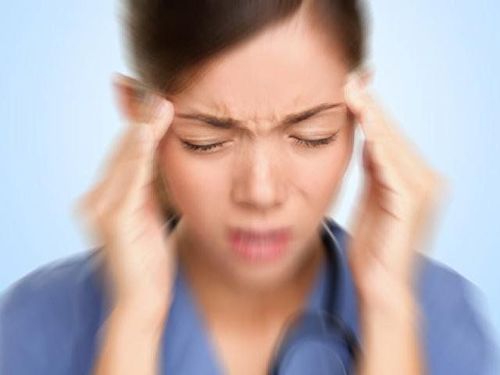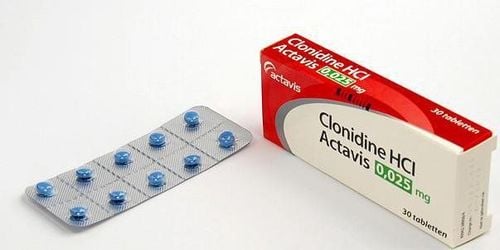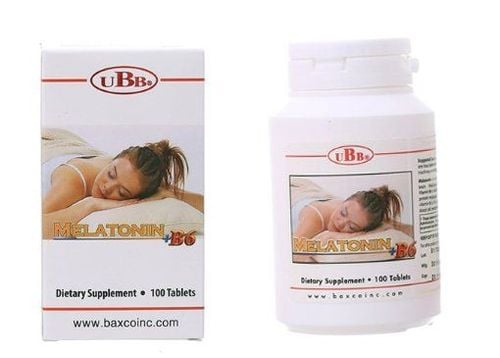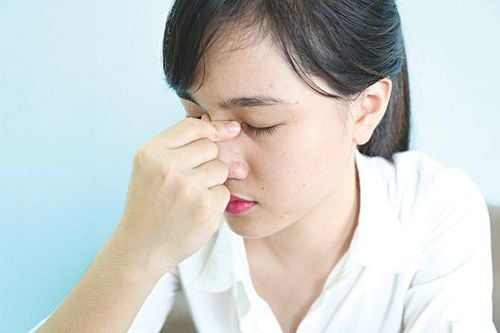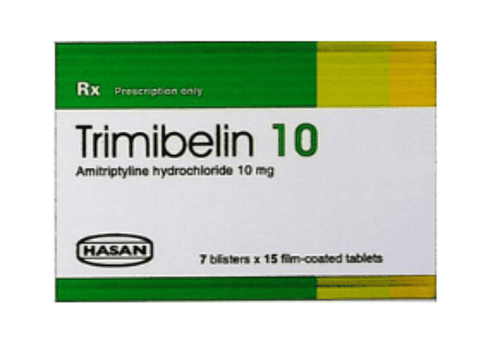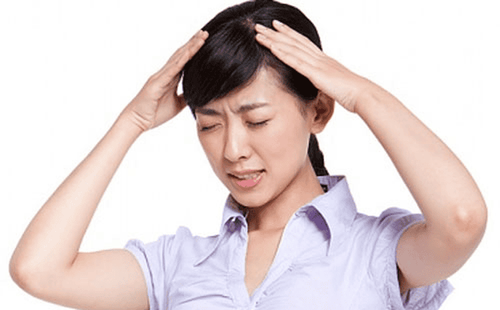This is an automatically translated article.
The article is professionally consulted by Master, Doctor Huynh An Thien - Neurologist - Department of Medical Examination & Internal Medicine - Vinmec Danang International Hospital.1. Tension headaches
Symptoms Tension headaches are the most common type of headache. The pain occurs in both temples, making you feel as if a belt is tied around your head or something is hitting your head, face, or neck. A headache that occurs can also make you more sensitive to light and sound.Causes Tension headaches occur for many different reasons. Mainly due to using computers and phones for long hours. In addition, it can also be due to psychological stress, skipping meals, depression, anxiety, too little sleep. They all affect the muscles of the neck, face, scalp, and jaw, causing headaches.
Treatment If the cause is arthritis, teeth grinding or sleep apnea, the doctor will prioritize treating the headache by treating the underlying cause first. If not, you may be offered an over-the-counter pain reliever such as acetaminophen or ibuprofen to help relieve headache symptoms. Alternatively, you can also choose natural methods such as taking a hot bath, placing a warm towel on the back of your neck, practicing meditation, yoga, and more to help manage stress.
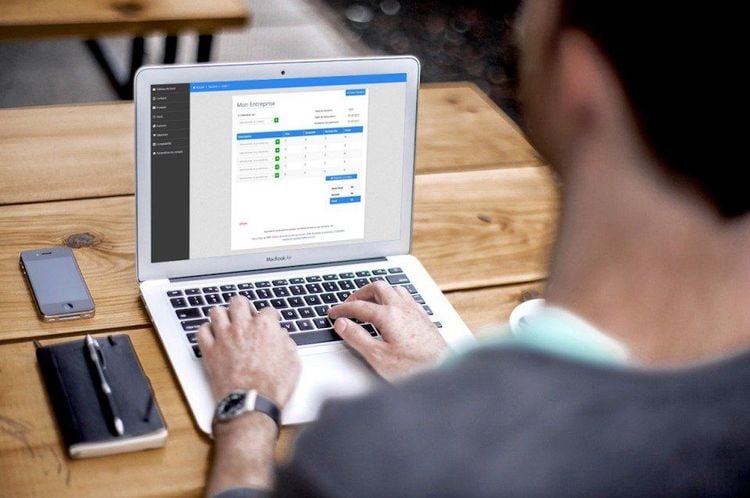
2. Migraines
Symptoms Migraine pain usually occurs on one side of the head, is more intense when the person talks or moves. In addition, you may experience nausea, sensitivity to light, noise, and smell. Specifically, you may smell strange odors, hear ringing in your ears, see flashing lights, wavy lines, or have a blind spot in front of your eyes. A day before a migraine attack, you may have cravings or a change in the amount of urine.Causes There are many causes of migraine, but the best known are genetic and environmental. Hormonal changes, stress, trouble sleeping, bad smells, cigarettes, skipping meals, anxiety can be among the conditions that trigger a migraine attack. Certain foods such as coffee, wine, aged cheeses, pickled or pickled foods, pepperoni, and salami are also thought to have the potential to trigger migraines.
Treatment To relieve pain, the patient should apply a cool towel to the forehead, rest in a dark, quiet room. Drink plenty of water, especially in case of vomiting. During your visit, your doctor can treat your headache by prescribing pain relievers. You need to avoid drug abuse, accordingly, you should only take it as prescribed by your doctor. To find out the exact cause of the disease, you should prepare a notebook and record your daily activities.
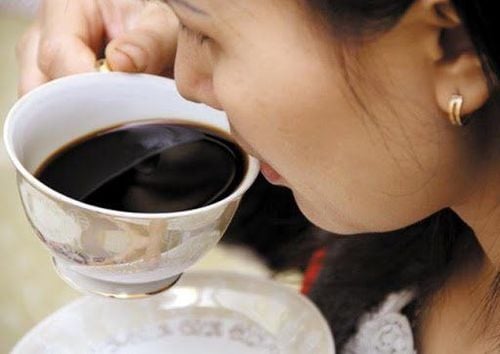
3. Cluster headache
Symptoms A cluster headache is a sudden, very painful headache on one side of the head, often behind one eye. The pain usually occurs at a certain time of day and lasts for several weeks. Headaches peak in 5-10 minutes and can last up to 3 hours. As the pain progresses, you may experience redness and swelling at the side of the pain, sensitivity to light, sound, or smell, or feel dizzy or nauseous before the pain occurs.Causes Cluster headaches often occur at night, so the cause may be due to poor sleep. Stimulants such as alcohol, tobacco along with genetic factors or head trauma are also thought to be one of the factors that cause the disease. The pain occurs more often in the spring and fall, sometimes mistaken for allergies.
Treatment When you go to the doctor, you can receive respiratory support by breathing pure oxygen to increase blood flow to the brain. Studies have shown it works for most people with cluster headaches. In addition, your doctor may also prescribe a triptan, which narrows blood vessels and relieves pain. In more severe cases, electrical impulses or surgery may be indicated to block signals to and from certain nerves.
4. Sinusitis headache
Symptoms Sinusitis headaches are often confused with migraine headaches. Both types of headaches are characterized by pain in the face, stuffy nose, and watery eyes, which is worse when leaning forward. To differentiate, you should pay attention to the symptoms that appear only in sinus headaches, such as thick, yellow mucus in the nose, fever, and difficulty in smell.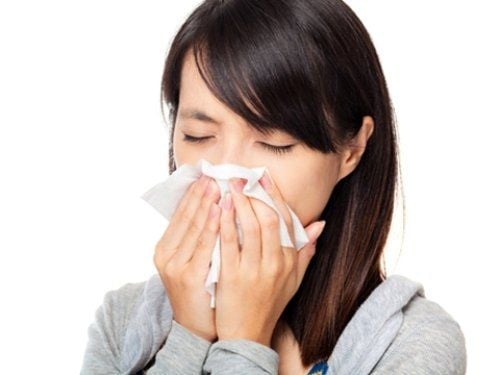
5. Secondary headache
Causes Secondary headaches are caused by a medical condition affecting the brain that causes pain. In particular, headache caused by sinusitis is also considered a secondary headache, because it is caused by sinusitis. Other factors that cause headaches can be trauma, blood vessel problems, brain tumors, and seizures.Treatment The doctor will find out the cause of the disease and treat it definitively. Accordingly, the doctor recommends that you pay less attention to the headache, the condition will get better.
Headaches not only cause discomfort, affect quality of life but also affect many aspects of human health. Therefore, if the headache lasts for a long time, the patient needs to go to the medical center, the hospital specializing in neurology to examine and find the cause for timely treatment.
Currently, at Vinmec International General Hospital, there is a full convergence of experienced doctors in specialized fields such as: Neurology - Stroke, Cardiology, Endocrinology, Digestive, Respiratory .. Patients wishing to examine and diagnose neurological diseases in general and headaches in particular can rest assured with the methodical examination and diagnosis process at Vinmec.
With modern medical equipment facilities, perfect medical services, a team of experienced and qualified medical doctors will bring satisfaction to customers.
Please dial HOTLINE for more information or register for an appointment HERE. Download MyVinmec app to make appointments faster and to manage your bookings easily.
Reference source: webmd.com




